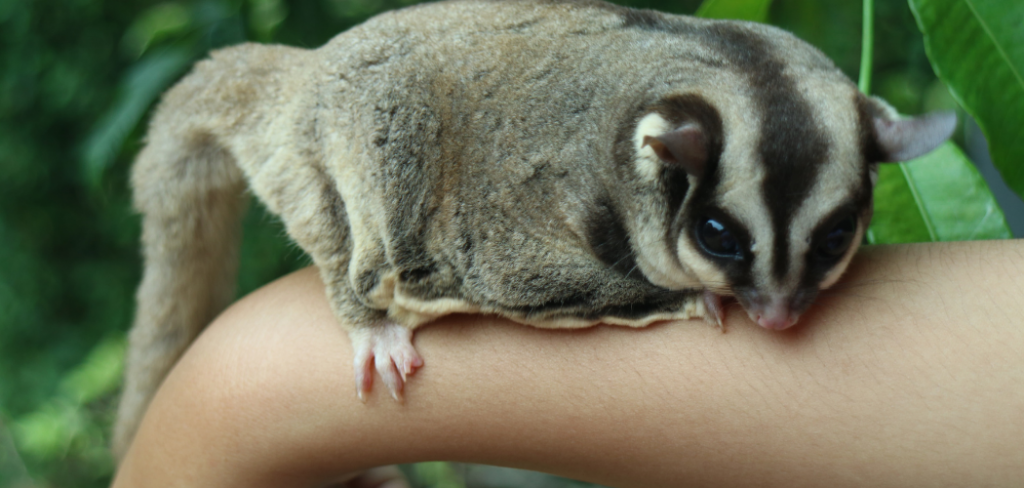If you are not a typical pet owner, probably you would want to own a sugar glider. While others go for dogs or cats for a domesticated pet, you want these small, omnivorous, and nocturnal animals instead. Sugar gliders belong to the family of marsupial mammals. Like the kangaroos, who are their distant cousins, they carry their babies on their little pouches. Sugar gliders make vocalizations that sound like they bark like dogs, but in a way to communicate.
As nocturnal animals, they have big black eyes and have better vision in the dark. The name sugar gliders refer to their preference for sugary foods. They feed on sap and nectar, and they glide through the air like flying squirrels. Sugar gliders are social animals. When they are in their colony, you will find them hanging out with other sugar gliders.
In this article, we will share reasons why this tiny pet of yours bark, and why usually at night. But if you are not an owner yet, but still thinking to have one, read on. We may be able to help you decide whether sugar gliders are for you.
Sugar gliders bark because of these reasons:
1. For them it’s a signal that a danger is near.
In the wild, when sugar gliders see danger or intruders, they will “bark”. This is their way of communication with other sugar gliders. The signal would tell the rest of the sugar gliders in their colony to “freeze”. By doing so, they think that if they remain still, their predator will not notice them.
Being brought outside their habitat as a pet, they would bark as they see an unfamiliar environment. For them, a change of environment will mean danger. Thus, they would bark as dogs do, but the sound is more of like it swallowed a squeezed toy. Since they are nocturnal animals, probably the weird-sounding bark you hear at night could be from a sugar glider.
2. Sugar gliders produce “hissing” sound when they groom themselves.
The barking sounds sweet glider produce is mostly to communicate with other sugar gliders. For domesticated sugar gliders, this is their way to communicate with their owners, too. A repetitive hissing or sneezing sound is another variation of their barking. This happens when they groom themselves by spitting into their hands. Thus, the sneezing or hissing sound, and then wash like cats do when they lick their paws and groom themselves.
3. When sugar gliders are stressed and afraid they bark.
Very often when you hear sugar gliders bark is when they are afraid. Being away in their natural habitat may be one reason they could be afraid. It could be also the reason why they bark.
If you are a new owner of a sugar glider, observe your pet. Understand the instances when it barks. It could mean that because of the new environment they are in, it gives them the fear of possible danger. Like humans, sugar gliders also need to feel secured and protected. They may be barking because they want to be held.
4. Mating is one reason why sugar gliders won’t stop barking.
In the wild, sugar gliders mate once a year only. If they are at domestic homes, then the desire and mating process can occur at least four times a year. It is the mating that can explain the constant barking of the sugar glider. This applies to both male and female gliders.
Sugar gliders bark to send a signal to other sugar gliders that it wants to mate. By barking, it reveals its location, so a potential partner may find it. Owners should know when it is mating season for their pets because the behaviors of sugar gliders suddenly change. It may not like to eat, not paying attention, or looks uninterested, and aggressive. Probably because their mind is mating and finding a mate. So, when you hear the sugar glider won’t stop barking, please understand, it’s doing its job to find a mate.
Reasons Why Sugar Gliders Are Not Ideal Pets:
This is article is not intended to promote getting sugar gliders for pets nor to discourage you to own one. However, we would like to help you decide by sharing reasons why sugar gliders are not ideal pets:
- They are delicate and require specialized care.
- You need ample space to care for them.
- Vets may find it hard treating them.
- You wouldn’t want to own sugar gliders that are farmed and bred from cruelty.
- It needs paper works done to own them.
- It’s expensive to purchase and care for them
- They are prone to injury and diseases.
- A specialized diet is required for sugar gliders.
- They can’t be left with someone else to look after them.
- Sugar gliders are messy and smelly
Conclusion:
Sugar gliders do not make good pets. Since they are wild animals, their complex needs can’t be met in captivity. Forcing them into the domestic life of confinement results in suffering. They will only be unhappy and unhealthy in the long run. That said, maybe you should go back to considering dogs or cats for pets instead.
